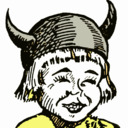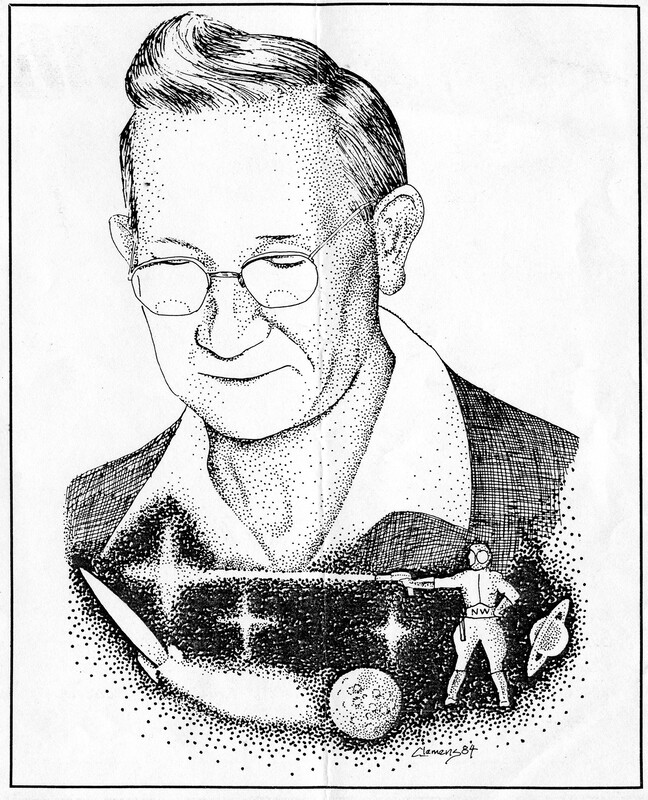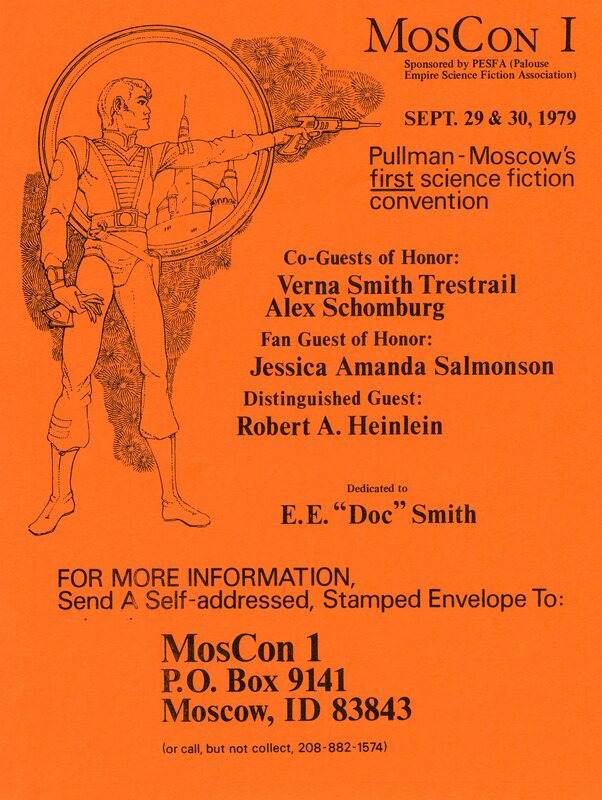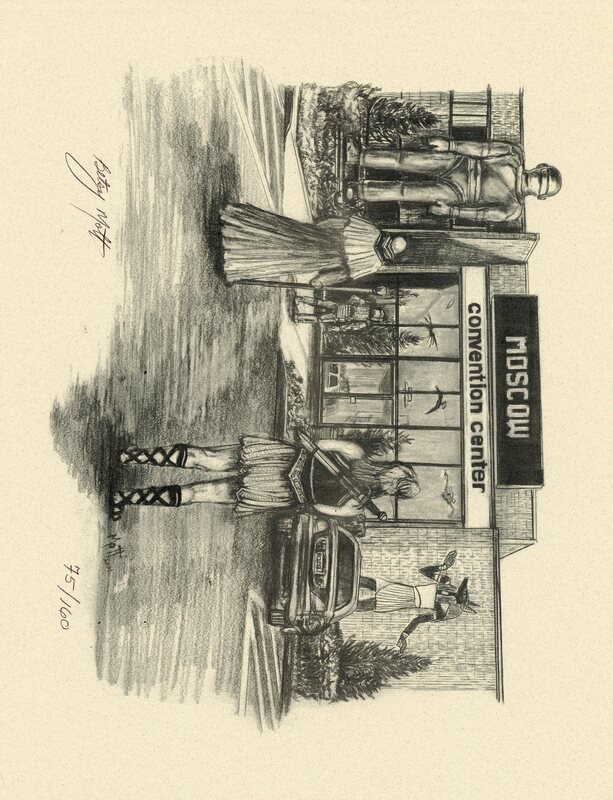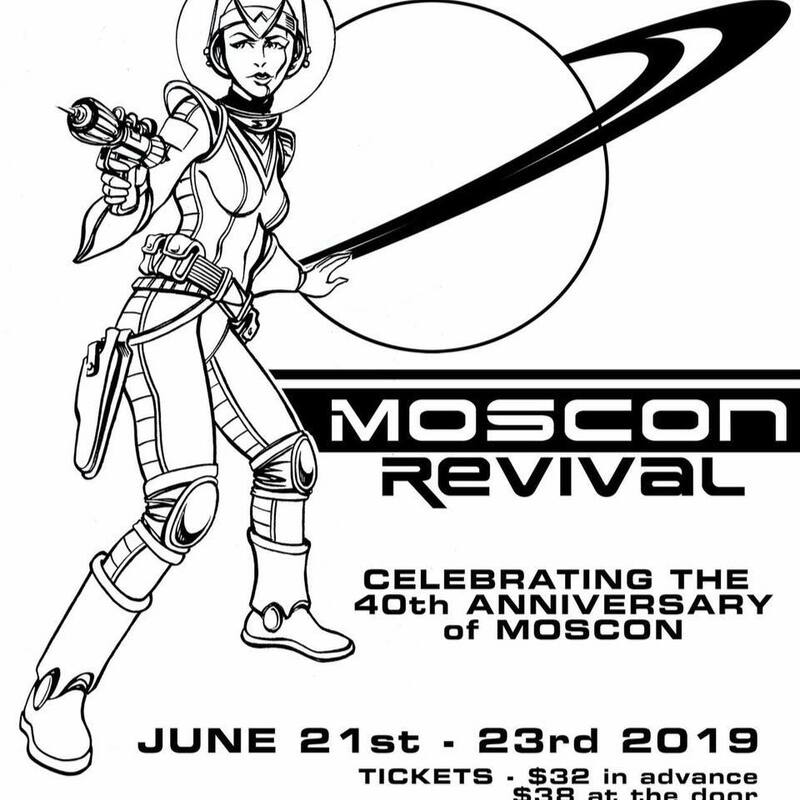Post written by Dusty Fleener, 2022 Gary E. and Carolyn J. Strong Fellow in Special Collections and Archives.
“Doc was the first. No one ever before had sent his characters racing into the unknown worlds of unknown galaxies to meet and learn from - or to battle - strange peoples and new forms of science. Doc showed all the rest of us the way…”
-Fred Pohl, American Science Fiction writer and editor
In the 1930s, passionate readers of pulp fiction magazines (printed on cheap wood pulp, giving them their names) like Argosy, Amazing Stories, and Astounding Stories began writing to one another in the letter column section. The science fiction fandom emerged from those early conversations published in 6-point or 8-point font.
Serialized within the Astounding Stories magazine from 1937 to 1948, the Lensman Series consisted of seven novels. Its author, Edward Elmer “Doc” Smith (1890-1965), was the creator of the first great space opera. He wrote about planet-scale battle stations four decades before Star Wars. Doc Smith also gave us the concepts for tractor beams, force fields, and cloaking devices, which have become staples of science fiction today. The series also influenced the creation of the first science fiction wargame to be commercially available, Lensman (1969).
A University of Idaho alumni, graduation in 1914 with two degrees in chemical engineering, Doc Smith was posthumously inducted into the University of Idaho Alumni Hall of Fame in 1984. If you’re interested in reading his bachelor’s thesis on the clays of Idaho, you may find it via the University of Idaho’s Digital Initiatives department, appropriately titled Some Clays of Idaho. He was inducted into the Science Fiction and Fantasy Hall of Fame in 2004. Doc Smith was also chosen as MosCon’s “patron saint.”
The first MosCon was held in September 1979, with Verna Trestrail Smith (1920-1994) who was the daughter of Edward Elmer (E.E.) Smith, and Alex Schomburg (1905-1998) as guests of honor. Robert A. Heinlein was prevented from attending due to illness in his family.
The convention manifested from the joint efforts of the Palouse Empire SF Association (PESFA)’s members, taking on the appellation in 1978. This group of science fiction fans in the Moscow-Pullman area, founded in 1974, met weekly to discuss science fiction, party, celebrate friendship and fellowship, and organize and run the only fan convention in the inland northwest - MosCon! The group was composed of people of all ages, occupations, and geographic locations (primarily in the Palouse). Jon Gustafson, Steve Fahnestalk, and Dan Mullen (early PESFA members) attended their very first science fiction convention, the 1975 Oakland Westercon 28, and began encouraging the formation and hosting of their very own regional convention.
PESFA sent members to attend the first Norwescon in Seattle, and even worked as staff. Emboldened with confidence and a membership of about 20 individuals, the first fliers for MosCon 1 went out announcing MosCon 1 in the winter of 1978.
The convention went on to be a success, celebrating its 10th anniversary in 1988. The PESFA team also collaborated to host the first Canadian-American fan convention in Banff, Alberta in 1989 (taking the place of MosCon 11).
It joined other contemporary fan-run conventions in the Pacific Northwest - VCon in Vancouver, BC, Canada (started 1971), Norwescon in Seattle, Washington, and OryCon in Portland, (both started in the spring and fall of 1978, respectively). Others soon followed.
While MosCon paused in 2001, a revival event occurred in Pullman, Washington in 2019.
As fan conventions across the pacific northwest and the country return to normalcy from COVID-19 restrictions which slowed or stopped them outright, there is hope to renew the convention’s run on the Palouse by PESFA and MosCon founders and new fans alike.
Thanks to the generous donation of Gary E. and Carolyn J. Strong I was able to assist in getting this collection transferred into archival folders and boxes, build a finding aid, and learn from primary source material about the Palouse Empire Science Fiction Association (PESFA) and its members.
